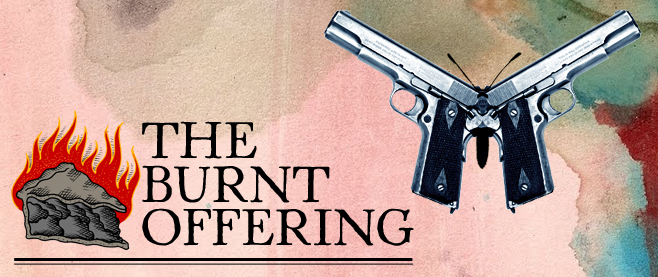
The Best Games of 2012
If the voting for this list is any indication, 2012 was an incredible year for games. Over 40 contributors nominated 91 games – a dizzying cross-section of games across all platforms from PC to console to mobile. Every top ten list a contributor submitted dramatically changed the standings. There were moments when games as different as Borderland 2, Hotline Miami and Dear Esther all occupied the top spot. Almost every contributor’s list had a game on it that I had never heard of before – Howling Dogs, Zaga-33, Dead Trigger and more. Mobile and downloadable games went toe to toe with the biggest AAA titles. Even more surprising, they won in a landslide.
There was a lot to love this year. The top standings wound up being so interesting that I could not limit it to a mere best ten games of 2012. A baker’s dozen seemed much more appropriate. So, without further ado, dive in to Unwinnable’s favorite games of 2012!
 Best Infuriating Test of Reflexes – Super Hexagon
Best Infuriating Test of Reflexes – Super Hexagon
You won’t get a sense of the brilliance of Super Hexagon after your first game. In fact, that first game will likely add up to approximately .7 seconds of play time, if you have a natural gift. Even after your first play session of 25 to 30 failed attempts to reach “square,” you’re going to feel frustrated. You’ll be compelled to go back to it, of course. That’s how these things work.
That’s not what’s special about Super Hexagon. It’s the way it slowly becomes a part of your life, not just in the way it inspires obsession on the part of the player, but in the way its foundational principles begin to seep into the way we think about our lives. It’s a parable about life that often makes life feel like a parable for a game: an attempt to navigate through a wildly spinning and disorienting void, closing in faster than we are able to prepare for it, until it inevitably collides with us, and we die. It’s like Plato’s Allegory of the Cave, only it’s more about death than it is about life – and with better voice over.
 Best Transcendent Psychedelic Experience – DYAD
Best Transcendent Psychedelic Experience – DYAD
The human body learns pretty quickly that, upon taking drugs, it has no internal Sherpa for these sorts of things. You pass out; you tense up; you dive right past your spirit animal and into a smoky, black hole of sadness. If a loud, color-bending video game like DYAD seems ideal for drug use, then by all means, pop a tab and kiss the actual game goodbye. But doing so denies the game’s genius – that it procedurally adapts to your threshold for weird.
A DYAD player won’t realize it, but he/she has total control over the Tempest-like game’s extremes: its speed, its kickass electro soundtrack, its difficulty. Between optional challenge levels and a difficulty-by-performance system, you’ll find that this trip down endless tubes, which asks players to latch onto colored orbs and other constantly changing objectives, has convenient, barely-visible handrails. Best of all, DYAD is over 15 games in one, as each level pours a little more crazy down its tye-dyed tubes. Save the pills and put your hands in DYAD‘s ever-mutating creases, and you’ll find that the colors pass through you at a perfect dose.
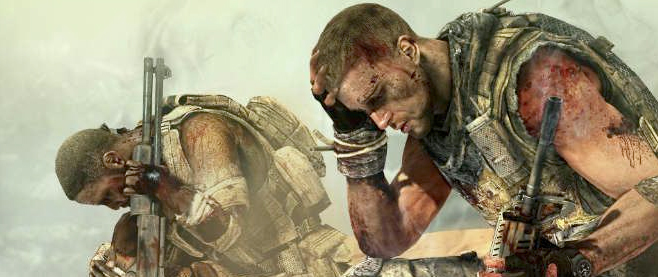 Best Unexpectedly Complicated Military Shooter – Spec Ops: The Line
Best Unexpectedly Complicated Military Shooter – Spec Ops: The Line
The greatest trick that Spec Ops: The Line pulled was convincing its audience that it didn’t exist. It infiltrated the military shooter genre with far more success than its protagonists infiltrated Dubai. Before anyone knew it was doing something different, it was too late; The Line had already completed its mission. It had already convinced players to just do the things that they do in military shooters without a second thought. Then it turned on the spotlights and tore the sheets off the mirror and made players see themselves for the first time. See, The Line doesn’t want to tell you that military shooters are ‘bad’. That’s not complicated; that’s boring. The Line wants you to look at your own actions. It wants the player that mows down faceless enemies by the hundreds without batting an eyelid to realize that they aren’t batting an eyelid and that, perhaps, that is a little bit weird.
To do this, players needed to approach The Line with the mindset and expectations one would take to the most conventional of military shooters. If you know what The Line does, then there is a strong chance it isn’t going to work, that your defenses will already be raised. But picture this: you are someone who plays military shooters often, someone who knows they are problematic but, whatever, they’re also really fun. So you start playing The Line because you want another military shooter. Then, gradually, you are being forced to do things that are totally horrific while, simultaneously, totally the same as everything you’ve ever done in these games. The greatest feat of The Line is that you know it is the same; you know that what you enjoy has always been horrific.
(The Line also wins the much coveted award for “Game I Am Most Sick of Writing Game of the Year Paragraphs About.”)
 Best Tigers and Leopards and Sharks (Oh My!) – Far Cry 3
Best Tigers and Leopards and Sharks (Oh My!) – Far Cry 3
Far Cry 3 is my favorite Cabela’s game. There’s something or other about saving friends and a warping moral compass, but that’s all thoughtful gray pulp and this is Shark Punching. If it weren’t for the command outpost raiding bottlenecks, I’d be happy to leave every human on Far Cry 3‘s gigantic, lush Polynesian island unharmed. Most of them are hipsters anyway.
But the BIG GAME, sweet Moses, the crocs and the wild buffalo and the angry ostriches and the tigers and the boar and the bull sharks. The island’s tense, dangerous atmosphere owes its good graces to these heroes of the animal kingdom, and my hundred bullet clip. So does my sharkskin wallet and my cassowary leather flamethrower fuel sack, which I’ll fill with flammable juices to smoke those goats out of hiding and into an itchy new grenade pouch. Tribal tats got nothing on my Komodo dragon-hide lootsack (a backpack for anyone familiar with English).
Maybe some are content to mow down waves of armed guards with increasing amounts of body armor. Maybe Far Cry 3 encourages a ludonarrative discussion undercutting the very violence it hinges on. Maybe that dingo ate MY FIST.
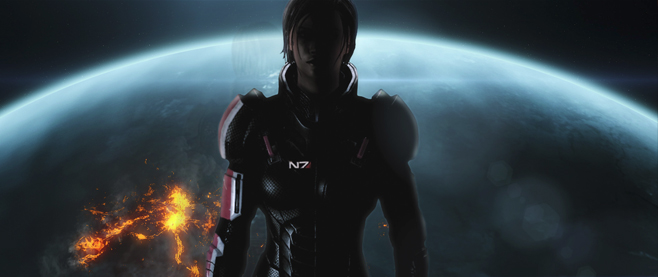 Best Reckoning – Mass Effect 3
Best Reckoning – Mass Effect 3
As the long, final act of a much larger story, Mass Effect 3 is all end-game. If ME1 is characterized by discovery & exploration and ME2 defined by collection (the opposing threat is literally labeled “The Collectors”), ME3 is all about conclusion. Every relationship Shepard has built up or torn down throughout her journey over the previous two games is given a kiss on the forehead and sent off into oblivion. Each resolution brings our hero one step closer to the finish line, manifesting in an all-encompassing, intergalactic apocalypse (admittedly, to varying degrees of success).
Despite the incredible size and scope of this drama, Mass Effect 3 is at its best when it is at its most personal. Every scene is a living wake. As a Califax hand cannon-carrying death card (which is to say she is an agent of change), Shepard comforts fallen comrades as they slip into the afterlife, professes love and loyalty to those who’ve had her back throughout this arduous journey, and bites her tongue as some of her best mates sacrifice themselves in a heartbreaking series of altruistic haymakers.
As a result, Mass Effect 3 succeeds in supplanting the rather lackluster finale with the gravity and nostalgia of all Shepard & Co. has been through up to that point. With an air of final judgement permeating every frame, we dutifully bestow ME3 with the honor of Best Reckoning.
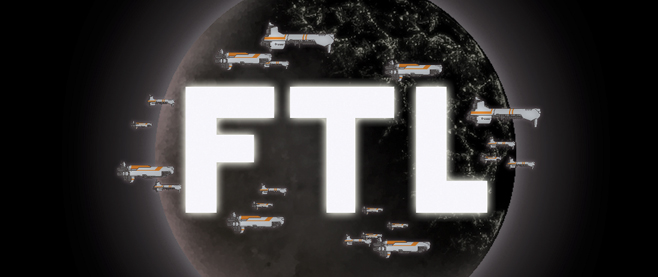 Best Gauntlet Run – FTL
Best Gauntlet Run – FTL
Any sci-fi nerd will tell you that FTL is an abbreviation for “faster than light” – a kind of spacecraft engine that seems to teleport its ship from point A to point B instantaneously. But I can’t get around the cheeky, gamer-speak double meaning where FTL means “for the loss.” Because in FTL you will die. In your harried quest across a dangerous galaxy, you will be met with disaster. Your crew will suffocate from a hull breach, die at the hands of space pirates or simply burn alive in a fire that raged out of control. Your ship will crumble to pieces dozens, if not hundreds of times before you learn the game’s harsh lessons. One doesn’t play FTL to fight and conquer the final boss. You play for the failures – the screw ups, the clusterfucks and the shaves that were just a hair too close – and the eventual skills and strategies that they impart. What is a gauntlet, after all, without the sting?
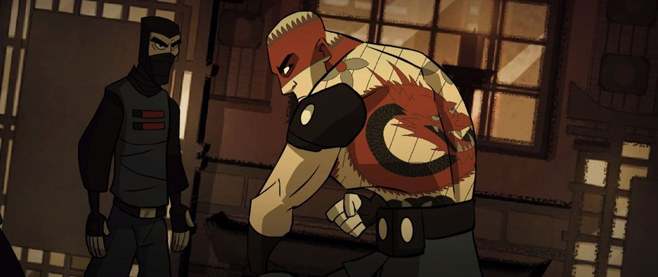 Best Game Made by Our Friends – Mark of the Ninja
Best Game Made by Our Friends – Mark of the Ninja
Let’s not kid ourselves about media bias on this one. The lead designer of Mark of the Ninja was Nels Anderson, who just began a regular column on game design for Unwinnable, the site you are reading now. The game was written by Chris Dahlen, who also has regular column on Unwinnable, the site you are reading now. Chris has also acted as an editor and mentor to many of the other writers at Unwinnable. Besides all that, Nels and Chris are our friends. Anyone at Unwinnable who knows those two lovely gents has been cheering on Mark of the Ninja since they first heard whispers of it last year.
The thing about Mark of the Ninja is that it didn’t need any extra help. It is a masterful reinvention of the stealth game with a subtle and nuanced story. It is an absolute joy to play. It would have been that regardless of whether Nels and Chris were our friends or not.
But Nels and Chris are our friends. And that makes us so goddamn happy – because nothing is better than when your friends make something amazing.
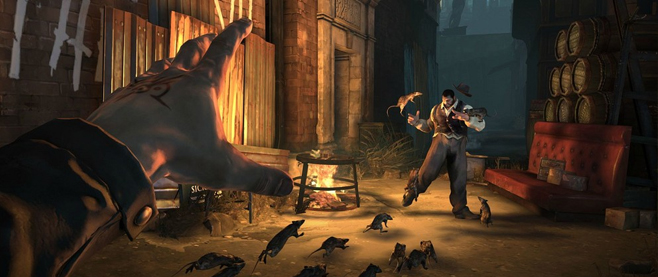 Best Build Your Own Murder – Dishonored
Best Build Your Own Murder – Dishonored
“We have the tools, we have the talent!” — Winston Zeddemore, Ghostbusters, 1984
The designers of Dishonored understand that the appeal of stealth games like theirs relies heavily on making the player feel powerful. They also understand that encouraging experimentation is crucial – if you can get by simply by spamming one ability or reusing the same tactic, things get boring quickly.
On both fronts, Dishonored is remarkably successful. And that’s largely because the game gives you the tools you need to develop your talent. Which, in the case of your assassin character Corvo, happens to be taking dudes out.
It’s no shock that Arkane, a studio helmed by veterans of the stealth genre, has created a beautifully balanced and varied set of powers for Corvo. Fusing mechanics with fiction, Dishonored allows the player to choose from a wealth of interesting abilities to accomplish Corvo’s objectives. If you’re not comfortable with summoning a swarm of rats to devour the guard in your way, you can just teleport behind him and choke him out. Or you could stop time and run past him. Or you could possess a rat and slip into a tiny grate at his feet. Each option is as satisfying as the next.
The same is true when it comes to navigating levels. Don’t be surprised if, upon completing an objective, you suddenly realize there were two or three other completely viable ways you could’ve achieved it. The prominent verticality of each map, combined with the variety of options for traversal and interaction, makes sneaking around just as satisfying as taking down enemies.
And that’s where Dishonored truly shines. For a game that gives you so many ways to craft the perfect kill, it makes non-lethal options equally rewarding. And that makes it about as effective a power fantasy as there is.
As Dr. Peter Venkman would say: It’s Millah time.
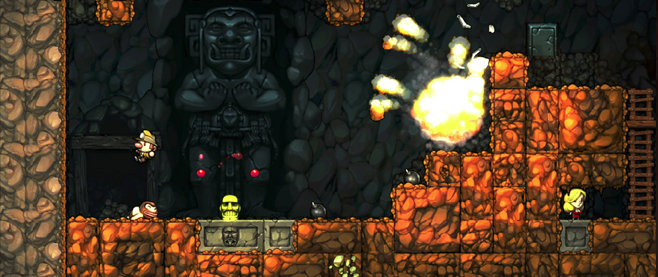 Best Use of Human Sacrifice – Spelunky
Best Use of Human Sacrifice – Spelunky
Was Spelunky the year’s best kid’s game? Look past the shotgun-toting shopkeepers and the temptation of demonic rituals, and Spelunky reveals itself as a toy box crossed with a case study in learning from experience. With procedurally-generated levels that change in every session, and sessions that can last as little as twelve seconds, Spelunky prevents the player from leaning on habits or learned patterns, insisting instead that you understand what every actor in the game can do, to you and to each other. By the time you find the monkey that poos gold, the possible combinations have grown mind-numbing, while the hard lessons that you learned from so many different deaths have hardened into instincts. Under the cartoony Indiana Jones theme lies a game that is less about adventure than about everyday life. And the first lesson it gives you is the toughest: always pay attention.
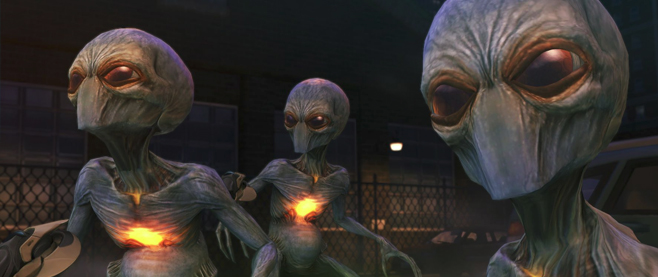 Best Turn-Based Permadeath Machine – XCOM: Enemy Unknown
Best Turn-Based Permadeath Machine – XCOM: Enemy Unknown
Sgt. Enrique Torres has an alien Muton in his sights. At this distance, with the alien in slight cover behind the window of a gas station, Torres knows that he’s got roughly a two in three chance to hit the alien with his sniper rifle. The Muton’s been wounded, but not enough so that Torres can guarantee that a hit will kill it. Torres does know that Mutons carry grenades and, if he misses, the first thing it’ll do is throw that grenade to hit – and kill – both him and Cpl. Sarah Hill, who ended up just a little bit too close to him.
Torres’ choice – your choice – is simple. He can move and guarantee that he’ll be saved, although Hill will be exposed and almost certainly be attacked and killed. He can stay and shoot, with a hit meaning safety for both but a miss means death for both. So what’s your pick?
XCOM is filled with those decisions. At the tactical level, Sgt. Torres’ choice, or something quite similar, happens in most missions, often multiple times. At the strategic level, you decide where to invest your research time, limited resources and even more limited money. Body armor or better weapons? More interceptors to shoot down UFOs or more soldiers? And one of the most interesting choices: how often will you reload? Will you play XCOM attempting to achieve perfection, refusing to allow it to get messy? Or will you embrace that mess and watch as your soldiers grow more effective, while dying tragically or hilariously, one at a time or in a huge, horrible wipeout? XCOM is turn-based, so you have all the time in the world to make those interesting choices. That doesn’t make them any easier.
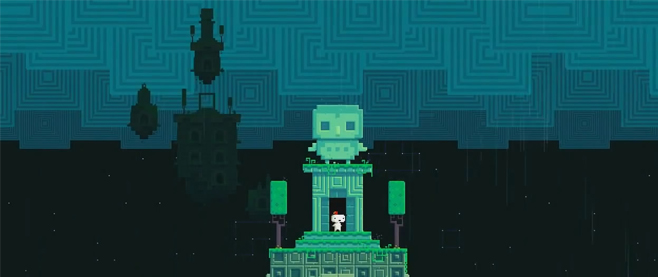 Best Wait That was Well Worth It – FEZ
Best Wait That was Well Worth It – FEZ

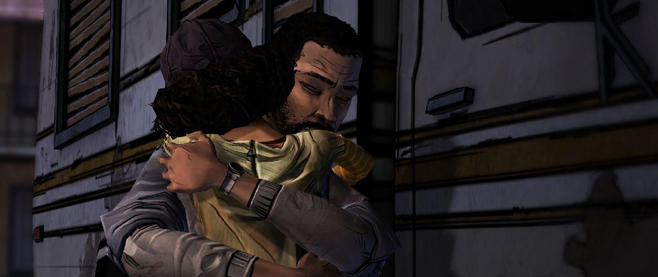 Best Moral Dilemma – The Walking Dead
Best Moral Dilemma – The Walking Dead
Like all the best doomsday scenarios, The Walking Dead knows full well that the prospect of survival against grave odds is never an easy or pleasant process (and violence is rarely the central issue). Instead, Telltale’s distressingly grounded writing foists on you the burden of split-second social Darwinism with no clear answers. Has someone’s mental state become too big a liability for the group? Who do you feed when there aren’t enough rations to go around? You don’t get to walk away from tough decisions.
Whether you choose to practice tolerance or cutthroat pragmatism, Walking Dead constantly reminds you that desperation can drive people to do terrible things and sometimes your best intentions are futile. Even with its broader story beats on-rails, it’s that proximity to ugliness that make your moment-to-moment actions so profoundly affecting – as in life, there are no clean breaks – while simultaneously raising the bar for psychological expectations in videogames.
 Game of the Year – Journey
Game of the Year – Journey
For a game so brief and relatively simple, I find Journey to be very difficult to discuss. It is beautiful, yes, both visually and aurally, especially when they merge together. It is mysterious – the ruins of the world, the emergent narrative that is shown and never told, the mercurial interactions with strangers during multiplayer. And there is the core mechanic of the game itself, so straightforward: your goal is over there, go to it and be filled with wonder.
That last part begins to get at the ephemeral and elusive qualities of the game. How do you deconstruct your sense of wonder? How do you convey the emotions the game draws forth? They are strong emotions – elation, despair, terror, whimsy. You understand what those words are meant to convey, but Journey is in the doing.
In many ways, Journey is a distillation of what gaming is, or can be. It is a resplendent engine. It is potential.
It is the perfect game to be Unwinnable’s Game of the Year.
———
Header illustration by Chris Martinez




